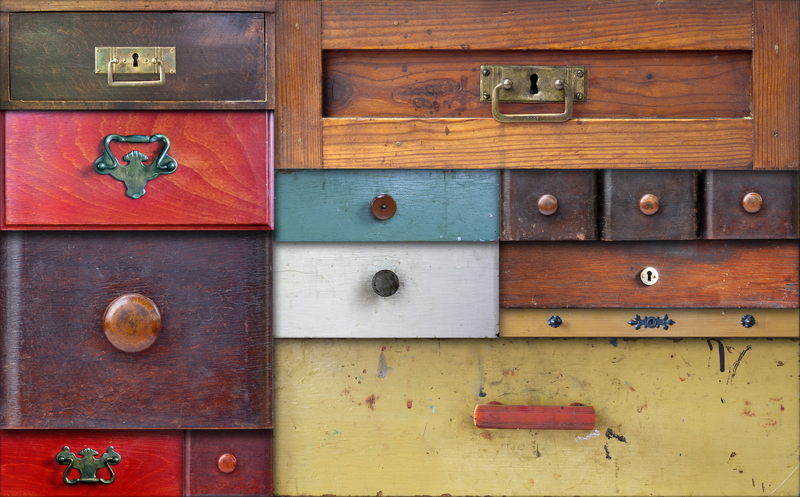
Options to Explore When Your Bin Is Still Full
We've all experienced that moment of frustration when we have more waste than our trusty bin can handle. Whether it's because of a recent cleaning spree, a party, or simply not having had the chance to empty it, an overflowing bin can be inconvenient. However, there are numerous options available for managing and reducing your waste effectively. This article will walk you through various solutions and strategies to consider when your bin is still full.
Evaluate and Sort Your Waste
Before exploring further options, it's crucial to evaluate and sort your waste. Sorting waste not only helps in reducing the volume of trash but also aids in recycling efforts.
- Separate Recyclables: Start by separating items that can be recycled such as paper, cardboard, glass, plastics, and metals. Many communities have dedicated recycling bins or centers where these items can be dropped off.
- Identify Compostable Materials: Organic waste such as fruit and vegetable scraps, eggshells, coffee grounds, and garden trimmings can be composted. This reduces the burden on your bin and creates nutrient-rich compost for gardens.
- Dispose of Hazardous Waste Properly: Items like batteries, electronics, chemicals, and paints should not be disposed of in your regular trash. Check with local facilities for proper disposal methods.
Reduce, Reuse, Recycle
The age-old slogan of waste management has never been more relevant. When your bin is full, look at the three R's--Reduce, Reuse, and Recycle--to decrease waste production in the first place.
- Reduce: Attempt to minimize waste by avoiding unnecessary packaging, buying in bulk, and choosing products with less packaging.
- Reuse: Find innovative ways to reuse items. For example, glass jars can be turned into storage containers, and worn-out clothes can become cleaning rags.
- Recycle: As mentioned earlier, recycle wherever possible. Make use of community recycling programs and facilities.
Consider Additional Bin Options
If you consistently find that your bin is full, consider investing in additional bin options.
- Larger Bin: Request a larger bin from your waste management provider. This is especially useful for large families or households that produce more waste than the average home.
- Extra Pick-Up Days: Some areas offer additional trash collection days for a fee. This might be a convenient option if you frequently need more pickup times.
- Shared Bins: If you live in a community or complex, check if shared or communal bins are available to handle surplus waste.
Explore Alternative Disposal Methods
Utilize alternative disposal methods to manage additional waste.
- Waste Drop-Off Centers: Many regions have centers where you can drop off excess waste, especially bulky items like furniture and electronics.
- Hire a Skip: For significant cleanouts or renovation projects, hiring a skip can be advantageous. This temporary large bin provides more space for waste disposal.
- Charitable Donations: Items that are still usable, such as clothing, furniture, or electronics, can often be donated to charities or thrift stores. This not only helps you with waste management but also benefits the community.
Utilize Innovative Waste Disposal Technologies
As technology advances, more innovative solutions for waste management are developed. Consider these options:
- Smart Bins: Some companies offer smart bins equipped with sensors to optimize waste disposal. These bins can alert you when they are full or categorize waste automatically.
- Waste-to-Energy: Investigate if your area has facilities that convert waste into energy. This process reduces landfill reliance and provides renewable energy.
Encourage Community Initiatives
Engaging with your community can lead to effective waste management strategies. Here are some ideas:
- Community Clean-Up Events: Organize or participate in clean-up events in your local area to reduce communal waste.
- Shared Composting: Establish a communal composting area or bin accessible to neighbors, which can help reduce organic waste sent to landfills.
- Educational Workshops: Host or attend workshops focused on recycling, composting, and sustainable living practices.
Implement Lifestyle Changes
Small lifestyle changes can lead to significant waste reduction over time.
- Adopt Minimalism: Embrace a minimalist approach to reduce consumption and waste production.
- Buy Organic: Purchasing organic or locally-produced items often involves less packaging.
- Practice Mindful Consumption: Be mindful of your purchases and consumption habits to avoid unnecessary waste generation.
Conclusion
When your bin is still full, it's essential to consider various waste management options that not only alleviate immediate issues but also promote sustainability. By evaluating and sorting your waste, considering additional bin options, exploring alternative disposal methods, and embracing innovative technologies, you make strides toward a cleaner and more responsible lifestyle. Remember, every small change contributes to a larger impact on environmental preservation and resource management.
So next time your bin reaches its limit, explore these options and take steps towards a greener and more sustainable future.
